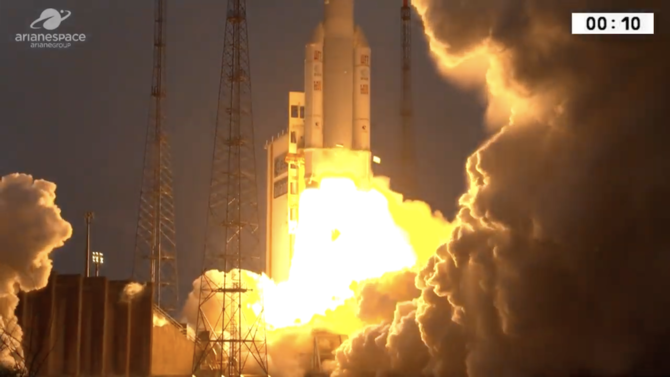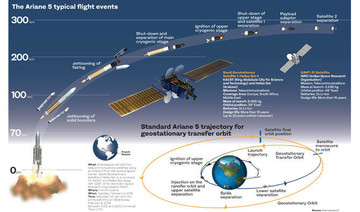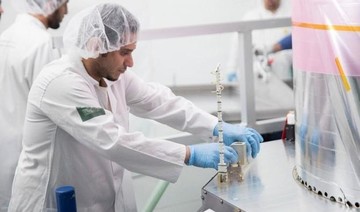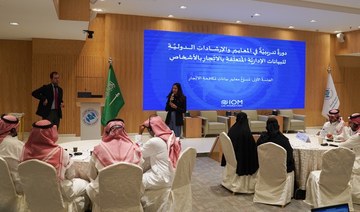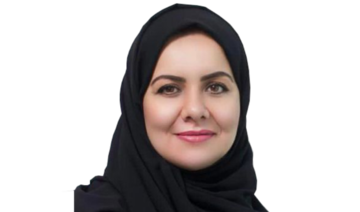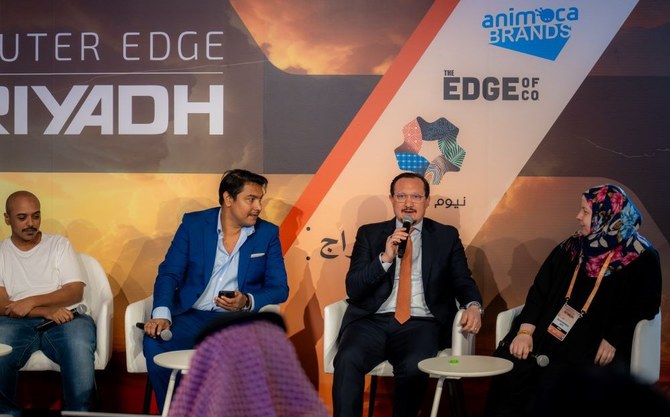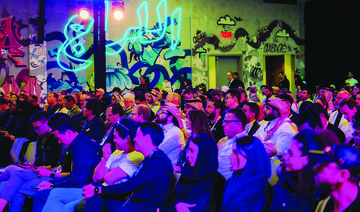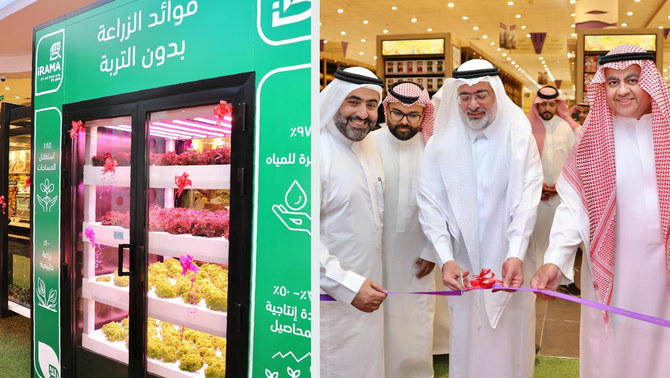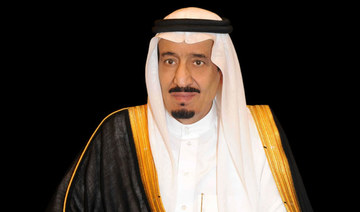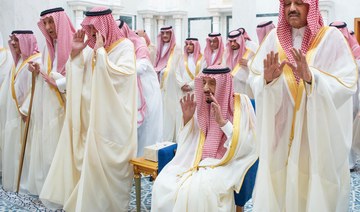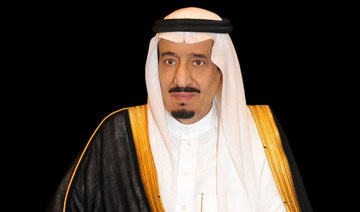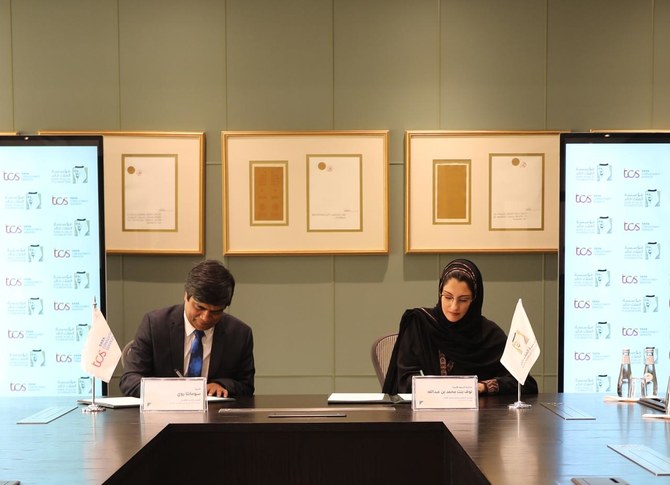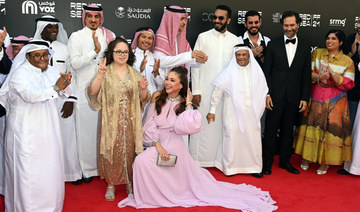JEDDAH: Saudi Arabia launched its 16th satellite into orbit on Tuesday, in a successful mission celebrated in the Kingdom and at the launch site in South America.
Crown Prince Mohammed bin Salman had signed the final piece to be placed on the satellite before its launch, with the words: “Above the clouds.”
The rocket carrying the Saudi Geostationary Satellite 1 (SGS-1) blasted into the skies above its launch pad in French Guiana on schedule at 9 p.m. GMT.
The satellite will provide telecommunications capabilities, stronger internet connectivity, TV and secure communications in the Middle East, North Africa and Europe.
The launch was carried out by Arianespace using the Ariane 5 rocket, which also carried an Indian satellite into orbit.
Shortly after takeoff, the rocket disappeared into the clouds. The booster consumed 240 tons of fuel in just over two minutes and was the first section to be jettisoned, falling 500 km from the coast into a protected area. The SGS-1 separated about half an hour after launch.
Saudi Energy Minister Khaled Al-Falih said such a spectacular national achievement is due to the great support provided to the Kingdom’s research and development sector by King Salman and the crown prince.
The launch is part of the Vision 2030 reform plan, which aims to localize strategic technologies in the Kingdom, and enable young Saudis to work with state-of-the-art technology in the field of satellite development and manufacturing.
Arianespace CEO Stephane Israel said: “I want to express my gratitude to our friends and partners in Riyadh, where I am sure this success is being celebrated.”
Along with the Saudi government, it will also serve Hellas-Sat, a subsidiary of Riyadh-based satellite operator Arabsat.
“Today we celebrated the success of the launch of the Ariane 5 mission. KACST is honored to provide the satellite in the name of Saudi Arabia thanks to the support of King Salman and the overseeing of Crown Prince Mohammed bin Salman,” said Dr. Badr Al-Suwaidan, SGS-1 program director from KACST.
The satellite was manufactured, tested and operated with the participation of Saudi engineers and scientists.
The crown prince oversaw manufacturing stages during his visit to Lockheed Martin’s San Francisco headquarters.
The Ariane 5 rocket used in the launch is designed for heavier, dual launches. The French Guiana Space Center is the world’s only dedicated commercial space base, with the launch located near water and away from population centers.
Richard Edwards, executive vice president of Lockheed Martin International, lauded his company’s strategic partnership with Saudi Arabia.
“The successful launch of this satellite is a first step in our unique partnership with KACST and Saudi Arabia, which is established on innovation, science, technology and human resources development,” he said.
The SGS-1 aims to employ advanced Ka-band capabilities to enable space communications at ultrafast speeds.
It is part of the national strategic plan to provide high-specification communications services custom-made for the government sector, and to export these services to the Middle East, Africa, Europe and Central Asia.
The satellite also aims to improve local capabilities and human resources, and create job opportunities in the space industry.
It uses advanced technologies that enable it to provide highly secure and anti-interference telecommunications.
The SGS-1 will offer multiple applications that include broadband telecommunications, highly secure communications, and communications dedicated to remote or disaster-stricken areas.
The satellite, which will be operated and controlled from ground stations based in Saudi Arabia, will serve and support the infrastructure of the Kingdom’s telecommunications sector.
The #SGS-1 provides secure satellite communication on the Ka-band for the government of #Saudi Arabia @BadrDrSpace @kacst @Arianespace @LockheedMartin @ISRO #HellasSat #Ariane5 #Arianespace #VA247 https://t.co/OtG3hA1vv3 pic.twitter.com/EsBGp1J56h
— Arab News (@arabnews) February 5, 2019


